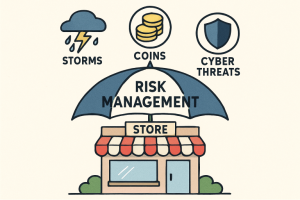With Singapore’s rapid urban development, constant construction, and increasing reliance on smart technologies, there’s a growing need for skilled professionals who can handle electrical systems safely and competently. Whether for residential buildings, commercial infrastructure, or industrial facilities, proper electrical wiring is fundamental to ensuring safe, efficient power distribution.
That’s why an electrical wiring course Singapore with Quality Safe is not only valuable—it’s essential. These programmes equip individuals with the knowledge and hands-on skills to install, inspect, maintain, and troubleshoot electrical wiring systems by national safety standards.
From licensed electricians to aspiring technicians and even hobbyists looking to gain a foundational understanding, electrical wiring training benefits a wide range of learners.
What You Can Expect to Learn
Courses in electrical wiring are designed to provide both theoretical knowledge and practical experience. Depending on the programme’s level and focus, you may cover topics such as:
- Electrical theory and safety practices
- Circuit design and interpretation of wiring diagrams
- Installation techniques for residential and industrial settings
- Troubleshooting electrical faults and using testing tools
- Compliance with local regulations such as the Singapore Standard CP5 and EMA (Energy Market Authority) guidelines
Advanced courses may also delve into automation systems, power distribution networks, and energy efficiency considerations—especially useful for those planning to enter specialised sectors like facilities management, renewable energy, or smart building systems.
Accredited Training Providers in Singapore
To ensure quality education and industry recognition, it’s important to enrol with institutions approved by the relevant Singaporean authorities. Some of the most reputable options include:
Institute of Technical Education (ITE)
ITE offers structured Nitec and Higher Nitec programmes in Electrical Technology and Facility Systems. These full-time courses are tailored for students looking to start a career in electrical engineering and wiring.
ITE’s hands-on curriculum is developed in consultation with industry partners, ensuring that students graduate job-ready and eligible for apprenticeships or technician roles in various sectors.
Singapore Polytechnic and Other Local Polytechnics
Polytechnic diplomas in Electrical & Electronic Engineering cover wiring fundamentals alongside broader electrical engineering concepts. These diplomas offer a strong academic base while incorporating lab work, group projects, and internships.
Graduates can choose to pursue work immediately or further their studies at a university or specialised institute.
BCA Academy
For those in the construction or facilities management sectors, BCA Academy offers targeted short courses and certifications related to electrical installation, wiring inspection, and maintenance. These are often suited for adult learners, including engineers, technicians, and building managers.
Courses also address essential topics such as electrical safety audits, permit-to-work systems, and energy-saving best practices.
Workforce Skills Qualifications (WSQ) Courses
The WSQ framework, administered by SkillsFuture Singapore (SSG), offers bite-sized modular training in areas like electrical wiring installation and workplace safety. These courses are popular among working adults, especially those upgrading skills or shifting careers.
WSQ programmes are competency-based and often subsidised, making them an accessible and flexible learning option.
Private Training Providers
Several MOM-accredited private providers offer short courses and workshops in electrical wiring, especially for adults pursuing Licensed Electrical Worker (LEW) status or looking to upskill. While quality varies, many provide evening and weekend classes to suit working professionals.
When selecting a private provider, ensure that the trainers are certified and that the course outcomes are recognised by relevant industry or licensing bodies.
Career Pathways After Training
After completing an electrical wiring course, graduates have several pathways open to them. Depending on their certification level and prior experience, they may qualify for roles such as:
- Electrical technician or supervisor
- Facilities maintenance officer
- Installation or service electrician
- Electrical inspector or project coordinator
- Energy efficiency consultant
In Singapore, those aiming to become Licensed Electrical Workers (LEWS) must pass the EMA’s licensing exam, which assesses both theoretical understanding and practical ability. Many training providers offer preparatory courses specifically for this purpose.
Why Training and Certification Matter
Working with electricity is inherently dangerous, and improper wiring can lead to fire hazards, electric shocks, and costly property damage. Training ensures that technicians and electricians:
- Understand safety protocols and legal compliance
- Know how to assess and manage risks on-site.
- Can deliver work that meets industry standards and client expectations
Furthermore, certified professionals are more likely to gain trust from employers, clients, and regulatory bodies. In sectors like construction, real estate, and industrial operations, proper certification is often mandatory for site access or contract approval.
Government Support and Subsidies
Singapore’s SkillsFuture movement actively encourages citizens to pursue lifelong learning. Eligible Singaporeans and PRSS can use SkillsFuture Credit to pay for approved wiring training courses. Many WSQ programmes and other government-backed courses also offer subsidies covering up to 90% of course fees, especially for older workers or SMES.
This makes training more affordable and accessible, especially for those seeking mid-career switches or upskilling opportunities.
Final Thoughts
Electrical wiring training is more than just learning how to connect wires—it’s about understanding the science, safety, and standards behind one of the most critical systems in any modern building.
Whether you’re starting, upgrading your skills, or aiming for certification as a Licensed Electrical Worker, Singapore offers a wide range of programmes tailored to different needs and career stages. Investing in training today not only enhances your safety knowledge but also opens doors to meaningful, stable, and high-demand careers in Singapore’s fast-evolving technical landscape.












